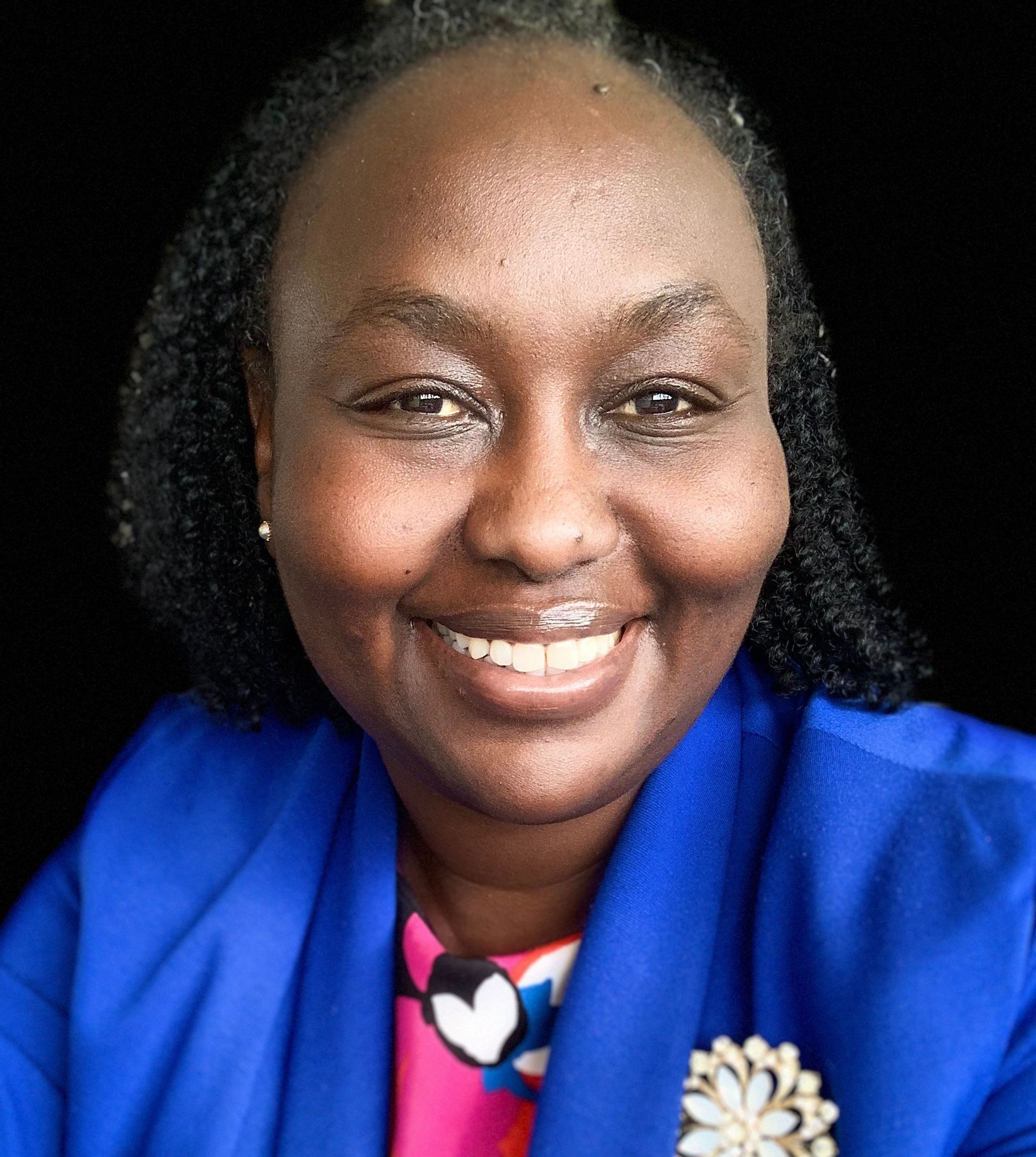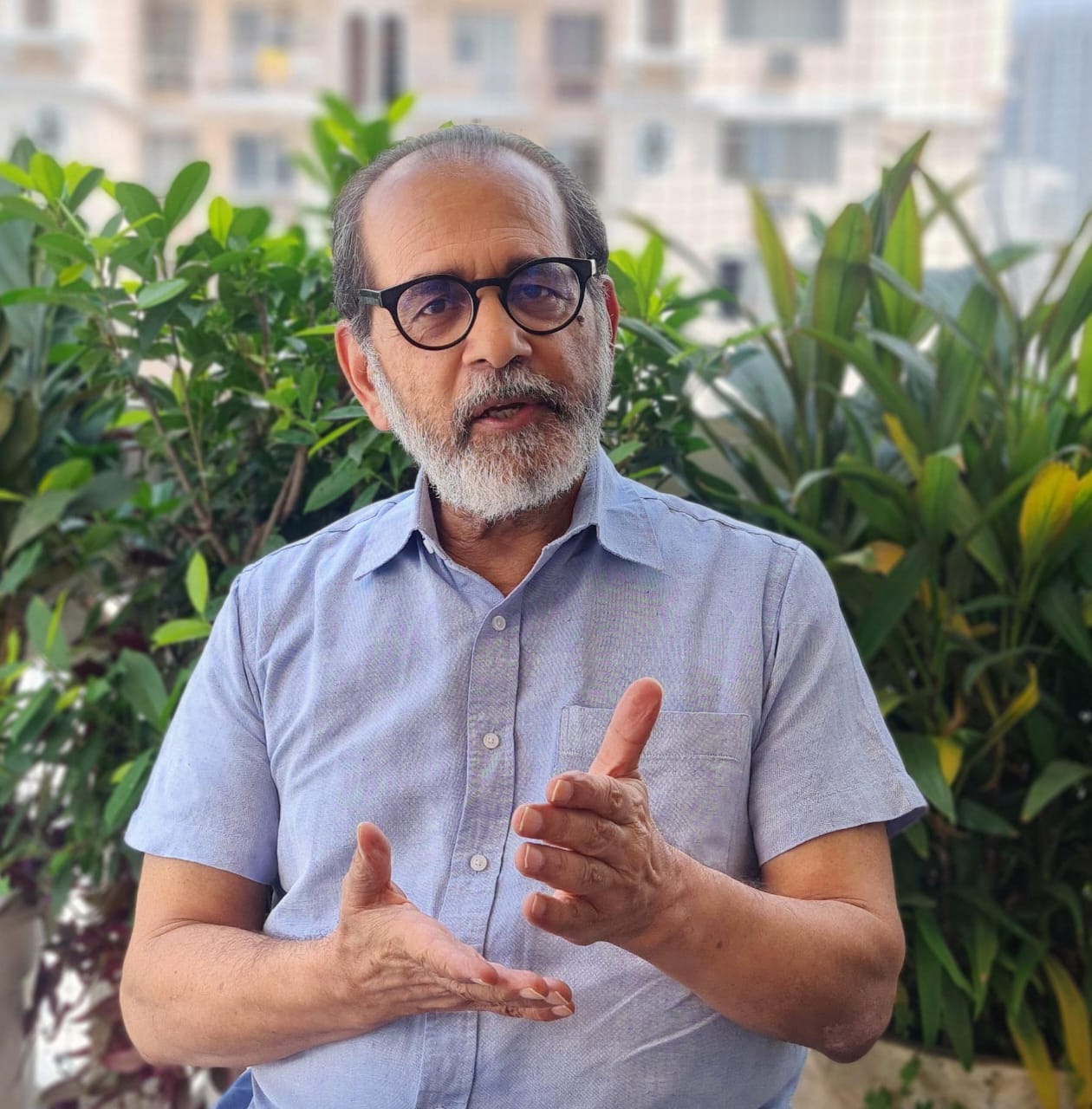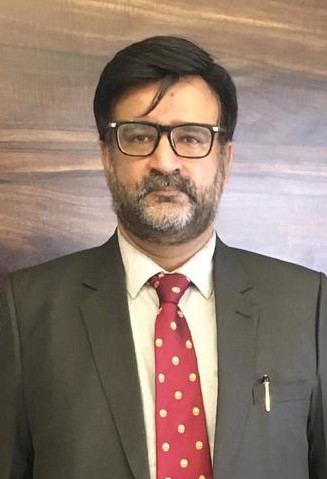The India AI Impact Summit offers a timely opportunity to experiment with and formalize new models of cooperation.
Lakshmee Sharma, Jane Munga
{
"authors": [
"Gilles Dorronsoro",
"Stephen Tankel"
],
"type": "other",
"centerAffiliationAll": "dc",
"centers": [
"Carnegie Endowment for International Peace"
],
"collections": [],
"englishNewsletterAll": "menaTransitions",
"nonEnglishNewsletterAll": "",
"primaryCenter": "Carnegie Endowment for International Peace",
"programAffiliation": "MEP",
"programs": [
"Middle East"
],
"projects": [],
"regions": [
"South Asia",
"Afghanistan",
"Pakistan"
],
"topics": []
}
REQUIRED IMAGE
The death of Osama bin Laden could have broad implications for the war in Afghanistan and the operations of radical jihadist groups around the world.
The death of Osama bin Laden could have broad implications for the war in Afghanistan and the operations of radical jihadist groups around the world.
Carnegie hosted a media conference call with Gilles Dorronsoro and Stephen Tankel to discuss these issues and answer related questions.
TRANSCRIPT NOT CHECKED AGAINST DELIVERY
THOMAS CARVER: Good afternoon. My name’s Tom Carver, I’m the vice president of communications and strategy at Carnegie Endowment. And thank you for joining us and welcome to what promises to be a very interesting conference call.
I have with me Gilles Dorronsoro, who’s a visiting scholar at Carnegie and an expert on Afghanistan, Turkey and South Asia and has just recently returned from Afghanistan, so has written today in the New York Times about the impact of bin Laden’s removal on the Taliban leadership and is happy to obviously talk about that.
And also Stephen Tankel, who’s a visiting scholar at Carnegie and an expert in insurgency and terrorism and the evolution of non-state armed groups in general. And earlier today, Stephen was testifying before the House Homeland Security Committee about the Pakistan militant group, Lashkar-e-Taiba, LET and their capacity to threaten the U.S. So I think between the two of them, I think we, you know, can very much cover a lot of the key issues that the removal of bin Laden brings up. This call is on the record –
So maybe – Gilles, maybe you could just – you could just start by, you know, what effect do you think the removal of OBL has on the Taliban?
GILLES DORRONSORO: I would say not too much on the ground. The Taliban are already the large organization. They have probably 30,000 fighters on the ground, so bin Laden is here, not here, isn’t going to change anything. And we know that al-Qaida is not major, or very significant, even, force in Afghanistan. So on the ground, no (inference ?), no impact.
The current – (inaudible) – will continue to be the same. The second level is more political. Bin Laden’s death is very good news for the Taliban, because it means that if they want to negotiate, they will not have to deal with, what are we going to do with bin Laden question. And so for them, it’s good news, basically.
MR. CARVER: So will this deepen the divisions, do you think, within the Taliban between those who want to negotiate and those who don’t?
MR. DORRONSORO: Not necessarily deepen the division, but it’s going to be clear that they will not have to deal with this very touchy question, because remember that in September, 2001, one of the key questions was, are we going to extradite bin Laden or not? And they were never able to do something coherent about that. They were divided inside the movement.
And so this question is never to be asked again. So it’s much more easier – it’s much easier for them to say, OK, we can enter a negotiation without dealing with this question. So there is also the marginal question about al-Qaida and Zawahiri and so on, but it’s probably easier to deal with because it’s not so symbolic for the U.S. and for the Taliban.
MR. CARVER: And you talk in the New York Times about a window of opportunity for the administration to take advantage of what you just outlined. Is it your sense that the administration will take advantage of that window and start to negotiate?
MR. DORRONSORO: I did not say that. (Chuckles.)
MR. CARVER: No, no, I know, that’s why I’m asking you, that’s why I’m asking.
MR. DORRONSORO: And my thing is that, no, actually. (Chuckles.) But still, you can write that it would be a good idea. What’s going on – I mean, what I’ve seen last time I was in Afghanistan, it is very clear to me that the surge has failed, totally failed. And the deterioration of the situation is going to be really a problem next year because we are going to see less U.S. troops on the ground – the Europeans are leaving, basically – and at the same time, the Taliban are much stronger than last year.
So what are we going to do if we do not negotiate? And bin Laden’s death is a good opportunity for the U.S. administration to start the negotiation. That’s the idea.
MR. CARVER: And what view do you – what role do you think Pakistan should play, if any, in that?
MR. DORRONSORO: Well, I would say that first, bin Laden’s death is good news on – (inaudible) – and is going to be very embarrassing right now. And so we all agree about that. But in the long run, it’s good news, because everybody knew that bin Laden was most probably in Pakistan and not in Afghanistan. So now the question is not going to be asked again.
And it’s going to be easier for Pakistan to push the United States out of Afghanistan, because it’s their strategic goal, actually. They want more interference on Afghanistan. And al-Qaida is a big distraction for them.
MR. CARVER: Stephen, can I turn to you? I mean, what are the kind of calculations that LET and some of these other jihadists groups are going through now, do you think?
STEPHEN TANKEL: Well, you know, the way in which the different outfits are going to respond is going to be driven, not surprisingly, by sort of what their relationships on the ground were with al-Qaida, both at an organizational and an individual level. And I think it’s important, when we’re looking at these calculations, before talking on a group-by-group basis to understand that at this point, what we’re dealing with is really sort of a consortium of different actors. The overlaps between the groups are far greater than they were five years ago.
And so organizationally, we can talk about Lashkar-e-Taiba or Tehrik-i-Taliban Pakistan or Haqqani network, and these are proper organizations to one degree. But there’s a lot more portability at the ground level between their militants. And so organizational decisions won’t necessarily be reflected at the grassroots level.
Now, that said, LET as an organization has never considered itself to be an al-Qaida affiliate, and it’s questionable whether the leadership would commit resources or risk the retribution that would come from acting, you know, on behalf of al-Qaida openly, in terms of retaliation.
Tehrik-i-Taliban Pakistan is a very different story. Whereas LET is much closer with the army and the ISI, Pakistan Taliban historically closer to al-Qaida, doesn’t nearly have as much to lose in Pakistan, because it’s already at war with the state. And so we’ve already seen, not surprisingly, statements by TTP that they are going to seek to retaliate.
Now, that again comes back to – that’s an organizational division, but on the ground I come back to the fact that there is a lot of portability in a consortium. So even if it’s TTP saying that they’re going to retaliate, where those fighters will come from and the networks they’ll rely on may not be necessarily, you know, exclusively TTP.
MR. CARVER: Right, they might outsource it.
MR. TANKEL: Right. I mean, there’s – you know, we’re sort of getting to the point where, you know, we tend to speak in terms of militant organizations in Pakistan acting unilaterally, but quite often, this is – again, I come back to a conglomeration of actors who will act in concert, and one group may just be out front.
MR. CARVER: Right. Do you see any of these groups, either in Pakistan or elsewhere, seeking to take advantage of bin Laden’s demise to kind of claim primacy globally, in any sense?
MR. TANKEL: I think that’s unlikely. You know, LET has sort of been the group that’s been spoken about as a potential successor in the global jihad. And because the leadership remains closer to the army and the ISI, because they haven’t been willing to speak and challenge the U.S. nearly as openly as bin Laden – for all of those reasons, their credibility is going to be lacking.
And then I would also say, you know, in general, one of the things that enabled bin Laden to lead the wider jihadist movement to the degree that he was a titular leader, a symbolic leader, is that he was a Saudi. And that makes a big difference. It would be very difficult for any Pakistani outfit to try to position itself as the new leader of the global jihad. So that’s probably something that, to the degree there is one organization that continues to be seen as the even symbolic leader, it will be al-Qaida and whoever succeeds bin Laden.
MR. CARVER: So what will – yeah.
MR. DORRONSORO: (Inaudible) – it’s very interesting what you said, and it’s clear that there are two different levels. First, there is al-Qaida as the organization built by bin Laden –
MR. TANKEL: The AQ central in Afghanistan-Pakistan.
MR. DORRONSORO: Yeah. But there is something else which is in a way much more important for the future, is the way bin Laden changed the way you can protest in the Middle East, the way you can do things. And the real problem long-term is that al-Qaida, it’s – for example, Mumbai. Mumbai is al-Qaida-Talib action. And it’s much more influential. In this way, the bin Laden inheritance in a way is that. It’s the way you do things; it’s not the organization, per se, I think.
MR. TANKEL: Right, well – and, look, to that point, I think that’s very important. In terms of whether there’s an organization that could replace al-Qaida central, I think the answer is no. But to Gilles’ point, I think since 9/11 we’ve certainly seen what could be called the hybridization among a lot of these different groups that before 9/11 were almost exclusively, or in many cases exclusively, regionally focused.
And this goes even for groups that ideologically were pan-Islamist, they would be regionally focused. Whereas in the last several years, really since 2003, 2004, what we’ve seen is a real hybridization among these outfits such that their primary focus remains regional, but there is a peripheral focus that is the global. And Mumbai is the example of that. It is primarily driven by LET’s animosity towards India, but there are global jihadi elements that are folded into that.
And I think it’s also important just to point out that we need to distinguish between symbolic leadership and sort of the operational capabilities of these different groups. And in that regard, there are other groups out there that operationally speaking may be more capable than al-Qaida central at this point.
MR. CARVER: Such as?
MR. TANKEL: Such as, al-Qaida in the Arabian Peninsula is seen to be at least on par in terms of a threat to the homeland, capabilities-wise. The question is, will they have as much influence symbolically as al-Qaida central has had? And that is something that is going to remain to be seen.
MR. CARVER: And so what happens to the global jihad, do you think?
MR. TANKEL: Well, bin Laden’s death is, I think, a symbolic setback for the global jihad, but not nearly as great a one has been the Arab Spring. You know, al-Qaida’s overall narrative, that violence is necessary in order to change these regimes, has been really challenged by the nonviolent protests that have erupted throughout the Middle East and North Africa.
And so to that degree, al-Qaida, in terms of its narrative and the cause it promotes, was already being marginalized on a macro level. This is just further salt on that wound.
MR. CARVER: I just want to pause here, just to see if there’s anyone who would like to ask a question at this stage. Is there anyone that has a burning question to ask? Let’s just move onto Pakistan, because this is obviously the kind of nexus of both where he died and, as you say, of LET and others.
I mean, can you unpack a bit for us the – A, the relationship between the Pakistan military and these groups and B, what you think the Pakistan authorities are going to do in the wake of bin Laden’s death?
MR. TANKEL: Yes. First, in terms of their relationship, broadly speaking I think it’s an open secret that since 9/11, the military has continued to crack down much more vociferously on some groups, such as, you know, being helpful to the U.S. in terms of hunting al-Qaida in the earlier part of the decade and also cracking down on groups like Tehrik-i-Taliban Pakistan than it has on other groups, like the Afghan Taliban, the Haqqani network, Lashkar-e-Taiba. This is the infamous double game. And I think there’s no secret that some militants in Pakistan are treated much better than others. And this exists on a spectrum.
I think your second question is, what will this mean for the U.S.-Pakistan relationship and what will –
MR. CARVER: No – well, yeah, what will the Pakistan authorities do in the wake of this? Will they change any of that strategy in the wake of bin Laden’s death?
MR. TANKEL: You know, that’s an open question that I think is impossible to answer. Gilles’ point that this was good news for Pakistan – I would say – I would temper that. And I think, you know, we’re seeing now a lot of calls in the U.S. to really ratchet back on support to Pakistan and to change the U.S. relationship.
Now, I’m one who thinks that that relationship is going to need to evolve but that the U.S. is going to need to stay engaged with Pakistan. We need to illustrate to Pakistan that even though bin Laden is dead, we will continue to engage with you over the long term. But the nature of that relationship is going to have to change.
There’s going to have to be a lot more transparency, there’s going to have to be an acknowledgement that the U.S. and Pakistan, although at times there’s this pretense that they have shared strategic interests, that they actually don’t have shared strategic interests – witness Gilles’ point about, sort of, Pakistani interests in Afghanistan.
You know, and I think going forward, the U.S. is going to have to use this incident to try to find whatever leverage it can to really try to force a change in Pakistani behavior. And part of that I think is going to have to come from increasingly engaging with civilian actors in Pakistan.
For a time period, the main interlocutors it seems have been military and ISI, and that has been this idea that from an operational perspective, that was necessary. Well, clearly, from an operational perspective, the fact that the U.S. executed this raid unilaterally suggests that there’s not a lot of faith in that relationship anymore. So this seems to me an opportunity to hit the reset button, if you will, and try to engage with a longer-term view towards promoting civilian governance in Pakistan.
MR. CARVER: But Gilles, yeah, you don’t feel that it’s put – it sounds like you don’t think it’s put Islamabad on the back foot.
MR. DORRONSORO: Well, what I – I think there is an answer. It’s not – the question has an answer. The answer is clearly that Pakistan is not going to change its policy, basically. They are going to support the Afghan Taliban, they are going to fight the Pakistani Taliban, Tehrik-i-Taliban. And that’s going – and they will have this kind of ambiguous relationship with Lashkar-e-Taiba just in the middle.
But I mean with contact with, say, the operation of the movement, but the foot soldier are kind of autonomous, so – I mean, kind of. And Pakistan is not going to change its policy for one good reason, is that there is nothing they can do at this stage of the game. If they are fighting the Afghan Taliban, they are losing everything –
MR. TANKEL: Yeah.
MR. DORRONSORO: – losing everything, because they are convinced and think that they are right that the U.S. made a choice and the choice is India, not Pakistan on the longer run. So they don’t trust the United States, and the 2008 nuclear argument is a clear demonstration that they were right. I mean, this argument was basically written by – (inaudible). And so we don’t see any sign of a change there.
And of course, 2011 is going to be a key year for Afghanistan. It’s the last year where the U.S. has enough power and strength in Afghanistan to do something. Next year, it’s going to be less. So I don’t see why the Pakistanis would change that policy right now.
MR. TANKEL: Yeah, I mean, I come back to – my point was more that in terms of how the U.S. pursues its relationship with Pakistan, going forward I think there is going to need to be a push towards more of a focus on civilian governments and less of a short-term focus on operational necessity.
But to your point, yes. I would agree that Pakistan’s objectives in Afghanistan will continue to guide its policies vis-à-vis some groups. I would also add, in particular with regard to Lashkar-e-Taiba, that even if Afghanistan is settled, you know – and the Kashmir conflict remains torpid, which is Kashmir being where LET made its bones originally – LET still provides utility to Pakistan at the very least as leverage on the negotiating table with India. And I think absent some sort of a fundamental shift in India-Pakistan relations, it will be difficult to get LET dismantled entirely. So –
MR. CARVER: So it has its uses.
MR. TANKEL: Right.
MR. DORRONSORO: (Inaudible) – and plus, Lashkar-e-Taiba now is – has significant bases in Afghanistan –
MR. TANKEL: In Afghanistan, as well.
MR. DORRONSORO: – based on the Nuristan – (inaudible). And that’s a place where actually, you find al-Qaida and Lashkar-e-Taiba, the Taliban is – (inaudible) – working together not so – I mean, in good terms, which was not the case a few years ago.
MR. TANKEL: No, no, as I said, there’s much more collaboration than in the past.
MR. DORRONSORO: Absolutely. That’s – absolutely, yeah.
MR. TANKEL: I think it is – I would say, I think it is important to also, you know, point out that once again, we’re talking about within these groups, particularly like LET, that you’re going to have factions within an organization. And so support – you know, I can speak to LET. You know, support to some parts of that organization, or – and you know, it can even be passive support, we’re going to let you do what you do – is going to be greater than to other facets of that organization.
MR. CARVER: Can we just move for a moment to the U.S. government? And you know, Gilles, you started by outlining a possible strategy for the U.S. government. But maybe Stephen, you could just talk for a moment about how the U.S. should engage the war on terrorism, as it were, or the global issue of Islamicism (ph). I mean, is there – does this change anything that the U.S. government should do, in your view?
MR. TANKEL: Not – I mean, I think this is a significant step forward, but I think the U.S. has already been – you know, the wind-down of the war in Iraq, ultimately a phased withdrawal from Afghanistan, working with regional partners – I think the U.S. has already been moving towards an approach in which it is pursuing actions on a region-by-region basis, cooperating with regional partners where it can and acting unilaterally at times where it can’t.
We’re probably likely to continue to see, you know, the use of special operators and targeted raids. Bin Laden is the most notable of those, but this isn’t the first time, you know, that a raid of this nature has been executed by Special Forces. And these will probably continue.
MR. CARVER: But I mean, for instance, should – do you think they should switch focus more towards Yemen or towards al-Qaida in Yemen or –
MR. TANKEL: Well, I think the – I think there is already a focus on Yemen. You know, I think this idea that the U.S. is going to be sort of hopping around the world from hotspot to hotspot to hotspot – you know, I would prefer to see it as, we are going to continue to respond to different threats that are quite often influenced by local, national and regional environments based on the nature of that threat, the nature of that group and the nature of allies in that region.
MR. DORRONSORO: Just, I would say that counterterrorism, this kind of operation have real limits. It’s good for bin Laden, but when you are going down to the foot soldier with the drone – with the drones operation in Pakistan are more and more that, you know. And then it’s not efficient at all, you know.
It means that basically, you cannot control these kind of areas – I am thinking about the Afghan-Pakistan border – you cannot control these areas for counterterrorism. You need a political deal with the major forces, really. You cannot – even in Nuristan right now, the east part – northeast part of Afghanistan is out of control. And you cannot just send one helicopter from time to time to kill a few guys and think that you are going to solve the problem.
MR. TANKEL: No, no, no, no, no. Yeah, yeah, yeah.
MR. DORRONSORO: No, no, no. I mean, no, I mean, yeah. We agree. (Inaudible, cross talk.)
MR. TANKEL: Yeah, yeah. (Chuckles.)
MR. DORRONSORO: No, we totally agree. That means that –
MR. CARVER: And that’s the tactics, right? What about the strategy?
MR. DORRONSORO: The strategy is that you need local allies. In the case of – and we also agree with this – we need local allies. So the real problem is not to kill one guy from time to time. It would be useful, but that’s not the point. The point is, how do you make local deal that could work? And that’s the problem with the drones attacks, that we – everybody basically is against this kind of attacks. So you have no political support. The real question is political support, not the tactics.
MR. CARVER: Well, again, I just wanted to give a kind of window. We’re coming up on the half-hour mark, which is where we’ll stop. But if there’s anyone who wants to ask any questions, please chime in.
Q: I’d like to ask a question. This is James Kitfield from National Journal.
MR. CARVER: Sure, go ahead, James.
Q: I’d like to just have both speakers expound on this idea of the Arab Spring and how it has basically worked against a movement or the ideology of al-Qaida and what that means long-term. I mean, is the threat from the al-Qaida ideology past, then? Has the Arab Spring been a total refutation of that or is it a sort of short-term setback to it? Talk a little bit longer term on that, if you would.
MR. DORRONSORO: OK, so I – (chuckles) – that’s one point where I do not agree with Stephen, is that from my point of view, the Arab Spring is very ambiguous. It depends. If you look at Bahrain, for example, the people are going to think that the only way to have a result in Bahrain is basically violence, because they did not get any kind of support.
If you look at Libya, the answer isn’t very clear, you know. And Yemen is really a point of (anguish ?). So in plenty of places – in plenty – I mean, in some places at least, I don’t think we are going for some kind of specific change at all. So that’s one point.
The second point is, even if things are going not so badly, I mean, I think about Egypt, the kind of regime you are going to have, it’s an open question. And most part, in the case of Egypt, you will have much more, let’s say, Islam everywhere than was the case a few years ago.
So here, the long term is not very, very, very clear. I would be very careful about the Arab Spring.
MR. CARVER: But – just before, Stephen – but does that – to get to James’ point, does that – even if there is, say a more Islamic nature to the Egyptian government, presumably it’s going to be a fairly moderate – presumably, it’s going to be fairly moderately Islamic. Does that mean, therefore, that helps radical Islam, which a lot of Muslims and Arabs don’t – you know, there’s a different between radical Islam and Islam.
MR. DORRONSORO: Actually, you’re right. I did not answer the question. (Chuckles) – so that was (implicit ?). So when this is – (inaudible) – Libya, Yemen, maybe other places, I think it’s not so bad for al-Qaida. It’s not so bad from this kind of movement – not especially al-Qaida – this kind of movement, because they can recruit militants, they can do things, they can have bases, networks. So that’s one thing.
And the second thing is that if you have more and more political Islam, even moderate and very democratic, actually, it’s going to create more tensions. And what seems clear to me in the Middle East right now is that the U.S. has less and less leverage on the local regime in Egypt and other places. That was my real answer.
MR. TANKEL: Right. So I think to sort of drill this down a bit, first of all, to the point that – can this create potential short-term opportunities for al-Qaida or other sort of jihadist actors? Yes. These groups tend to thrive on disorder and chaos, and you’re going to get that in periods of change.
Two, does it create the potential for disappointment because people see, OK, I’m hopeful that I’m going to get a better government and then I don’t, and so I am disenfranchised? Yes. And to the question of, are some countries and regions experiencing a better Arab Spring than others? Again, yes.
So those are the cons, but I would again come back to on the pros side, first of all, there’s been – as the Arab Spring was developing, for those who – those of us who follow al-Qaida’s statements, I mean, there was a silence for quite some time because al-Qaida very clearly did not know how to respond to what was in many ways a youth movement.
And they’d been – you know, bin Laden had been pushing for the Muslim youth to rise up for 20 years, and now the Muslim youth were rising up and nobody was saying anything about al-Qaida or bin Ladenism or anything else. And in some of these places, that uprising in the early days was quite ecumenical. So that’s number one.
Number two, the approach, again, I come back to. It was an approach that refudiates (ph) al-Qaida’s approach, which is one based on civil society rather than violence. And I think that’s a very good sign, and it suggests that already, al-Qaida’s overall approach and narrative had been to a degree rejected.
Third, I would state that even given the short-term opportunities, the potential for disappointment, the fact that some regions have coped with this better than others, the overall narrative of the Arab Spring has been one that really calls into question al-Qaida’s narrative and al-Qaida’s cause. And we shouldn’t lose sight of that big picture net-plus.
I mean, even with all the potential pitfalls – I don’t want to pretend like this is all sunshine and roses – but this does put al-Qaida’s narrative further under strain. And it was a narrative and a cause that was already being challenged as a result of driving Iraq into a sectarian civil war. I mean, that had lost al-Qaida a lot of support in the Muslim world. I think this is just another nail in that coffin.
MR. DORRONSORO: I mean, to start with, al-Qaida never had a huge support in the Muslim world. I mean, there was the figure of bin Laden and it was more about being anti-American than supporting, really, al-Qaida. So to start with, I mean, they never had this huge support. So they are not losing that much, in this sense.
And the second thing is that what is more ambiguous is that I don’t see a change in the way – a real change in the way that people are perceiving, are thinking the United States. It’s still very much anti-American in a lot of places – Pakistan, Afghanistan and part of the Arab world. So there is still this feeling.
And I mean, what we are seeing in Egypt is not all that good. It’s starting with Israel, and the next is going to be United States.
MR. CARVER: OK, great, thank you. I hope that answers it, James. Any others?
Q: Yeah, that’s great, thanks.
MR. CARVER: Any other questions? OK. Well, we said we would keep it to a half an hour. I hope that was helpful for everyone. If you want to get a – both a transcript and an audio of it, if there were quotes that you missed and want to go back over it, then we can provide that. And it just remains to me to thank you, Gilles and Stephen, very much.
MR. DORRONSORO: My pleasure.
MR. TANKEL: Thank you.
MR. CARVER: Thank you.
(END)

Former Nonresident Scholar, South Asia Program
Dorronsoro’s research focuses on security and political development in Afghanistan. He was a professor of political science at the Sorbonne in Paris and the Institute of Political Studies of Rennes.

Former Nonresident Scholar, South Asia Program
Tankel was a nonresident scholar at the Carnegie Endowment, where his research focuses on insurgency, terrorism, and the evolution of nonstate armed groups.
Carnegie does not take institutional positions on public policy issues; the views represented herein are those of the author(s) and do not necessarily reflect the views of Carnegie, its staff, or its trustees.
The India AI Impact Summit offers a timely opportunity to experiment with and formalize new models of cooperation.


Lakshmee Sharma, Jane Munga
An exploration into how India and Pakistan have perceived each other’s manipulations, or lack thereof, of their nuclear arsenals.

Rakesh Sood
A close study of five crises makes clear that Cold War logic doesn’t apply to the South Asia nuclear powers.

Moeed Yusuf, Rizwan Zeb
While the fighting continues in Ukraine, Moscow will seek to avoid getting drawn into guaranteeing security on the long border between Afghanistan and Tajikistan.

Temur Umarov
Hard-line approaches to asylum policy are increasingly common, with crackdowns proposed even by parties that traditionally hold liberal views on migration. Does this shift represent a break with Europe’s fundamental values?

Thomas de Waal